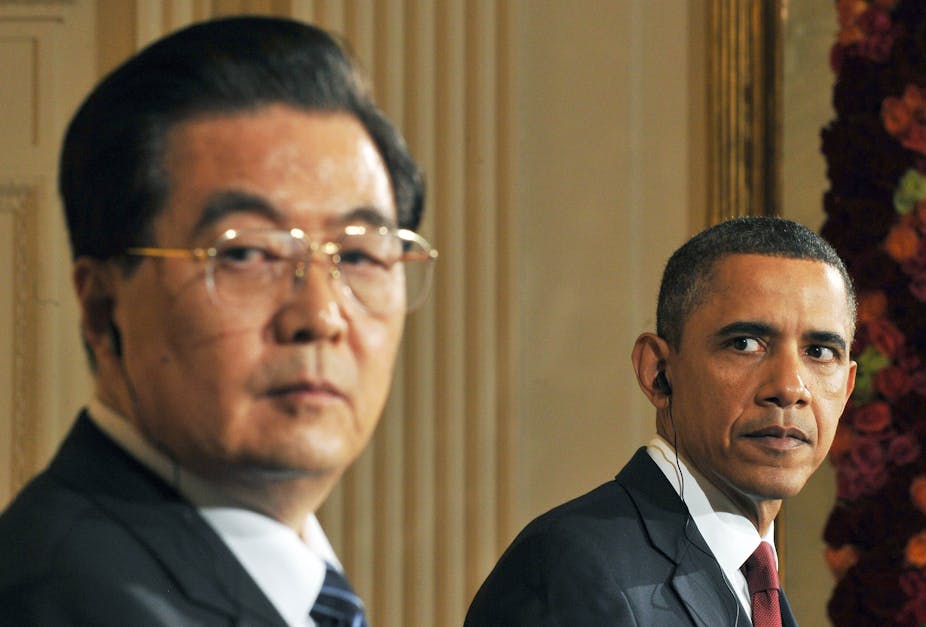After initially refraining from public comment, China has now joined the ranks of countries and international institutions voicing concerns over the US public debt-ceiling impasse.
Late last month, China’s State Administration of Foreign Exchange delivered the message: “We hope the US government will take responsible policies and measures to boost global financial market confidence and respect and protect the interests of investors.”
As the single largest foreign holder of US Treasury securities, China would seem to have a great interest in a successful resolution being reached.
The latest figures (May 2011) from the US Treasury put China’s holdings of US debt at nearly $US1.2 trillion. That’s 25.9% of total foreign holdings and roughly the equivalent of Australia’s entire GDP.
Some commentators, such as The Wall Street Journal’s Anjali Cordeiro, contend that such is China’s importance as a holder of US Treasury securities it could help break the impasse by threatening a mass sell-off.
While the US defaulting on its debt obligations would obviously have the potential to hurt China, the fact is that it would hurt the US even more, and therefore the debt ceiling is expected to be raised.
However, this may not be the end of the story for both countries.
One scenario being considered is that even if the debt ceiling is raised, the present impasse might reduce China’s appetite for US government debt in the future. The concern here is that if China stopped buying US government debt, US borrowing costs could rise at a time when the US and world economy could ill-afford them to do so.
The “quantitative easing” policies pursued by the US Federal Reserve have already been widely criticised in China because they are seen as contributing to inflation and threatening the value of the country’s foreign exchange reserves, by far the world’s largest at $US3.2 trillion and mostly denominated in US dollars.
While the possibility of China reacting in such a way makes for an eye-catching headline, its response is likely to be far more muted, and in any case, less consequential than is commonly assumed.
The first point to keep in mind is that when China has bought US Treasury securities in the past, it has not done so out of sympathy for their budget deficits. It has done so for entirely self-serving reasons.
Firstly, it has purchased US Treasury securities to slow (or stop entirely) the appreciation of the renminbi. Given that China has typically run (sometimes large) trade surpluses over the past decade, without such intervention Chinese exporters would now be facing a stronger RMB than they currently are.
In short, China has lent money to the US government to preserve employment in its own export sector.
Secondly, and related to the first point, if China had not bought US Treasury securities, what were its alternatives? It could perhaps have lent to US companies, or invested in them directly. But these options are far more administratively troublesome, and in any case, not available on the sheer scale that China has often required.
Consider the political objections that were raised in just the single instance of when the Chinese oil company CNOOC made a bid for UNOCAL in 2005. In contrast, the market for US Treasury securities is the most liquid of all.
Thirdly, in principle China could have invested the proceeds of its trade surpluses at home rather than abroad in US Treasury securities. But this assumes that China’s financial system is able to intermediate funds efficiently. It has shown little ability to do so to date.
A recent report by ratings agency Moody’s put the share of non-performing loans in Chinese banks at between 8% and 12%. This is after repeated bailouts in the past.
While US Treasury securities are relatively low-yielding, they are nonetheless safe. Note that they continue to be AAA-rated even as the debt ceiling deadline approaches.
Finally, if China did suddenly seek to offload a significant proportion of its holdings of US Treasury securities, it can be assured that some other investors would follow. The end result would be the price of their remaining $US assets would fall. They would be shooting themselves in the foot.
The second crucial point is that China’s importance as a creditor to the US government should not be overstated. While China’s holdings of US Treasury securities at nearly $US1.2 trillion are not small, they still only amount to 8.1% of total US public debt outstanding.
The majority of US public debt, 68.5%, is in fact owed to domestic investors. Over the past year, the importance of China as a creditor has actually diminished.
Consider that from June 2010 to May 2011, China’s holdings of US Treasury securities increased by $US47.7 billion. Total US public debt outstanding meanwhile increased by $US1.1 trillion. That is, China was only responsible for funding 4.2% of the increase. China’s holdings of US Treasury securities in May 2011 were actually down from October the previous year.
Clearly, China lacks a strong motive to abandon US Treasury securities. And even if its past enthusiasm was tempered in the future, as the last 12 months have shown, there does not appear to be a serious lack of other buyers.

